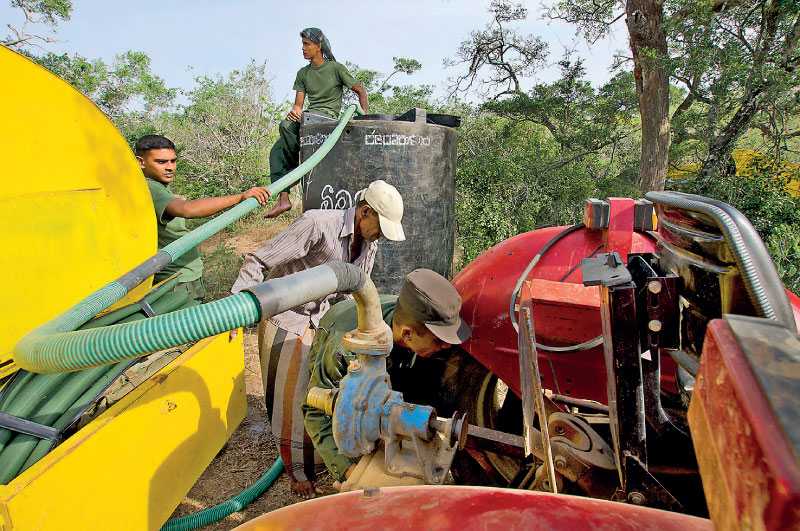Tuesday Feb 24, 2026
Tuesday Feb 24, 2026
Monday, 3 May 2021 00:00 - - {{hitsCtrl.values.hits}}

Water plays a critical role in future proofing food systems against climate shocks and pandemics. At the heart of functioning food systems are water systems with three main components: water supply to the food system; water use in food production and water for food consumption – Pic by Shehan Gunasekara
The Food Systems Summit Global Dialogue; Water – the Game-changer for Food Systems has concluded with consensus that water has unmatched utility to support the necessary transformation of food systems.
Participants, including six senior IWMI experts agreed that water plays a critical role in future proofing food systems against climate shocks and pandemics; making them more inclusive and healthier; ending hunger and malnutrition, and safeguarding the health of our planet.
Participants gave a strong recommendation that water and the key findings of the Dialogue are given center stage in preparations for the UN Food Systems Summit in September.
Given the growth of water-intensive industry, agriculture and energy generation, it is vital that governments and authorities develop an understanding of water as a finite and valuable resource that needs to be managed across all its uses. While agriculture accounts for between 70 and 90% of freshwater use it is important to take a systems view including the benefits for people, climate and nature of managing water across the whole food system – from supply of water to food production and consumption.
Strategic Program Director – Water, Food & Ecosystems Stefan Uhlenbrook: “IWMI convened Independent Dialogues in the lead up to this Global Dialogue and arrived at similar conclusions. Well managed water resources are critical as a means to enhance sustainable, resilient food production while ensuring that ecosystems thrive and to meet the Sustainable Development Goals (SDGs). Cross-sectoral collaboration of the water, food, agriculture, energy and forestry sectors is critical. These are simple messages that we want to carry forward for recognition by Member states at the UN Food Systems Summit in September.”
The virtual Dialogue was co-convened by UN Secretary General’s Special Envoy to the Food Systems Summit Agnes Kalibata and UN-Water Chair and President of the International Fund for Agriculture Development (IFAD) Gilbert F. Houngbo. Kalibata said: “Water is life. But it is one of the elements of the food system that is most taken for granted. Water is vital for agriculture and for peace and security. Put water, front and centre as you enter into these conversations.”
Houngbo said: “Water scarcity translates into food scarcity. The kinds of food we grow have a direct impact on water. The way in which water is used in agriculture is no longer sustainable. Intensifying competition for water and the effects of climate change leads to more tension and greater inequality.”
It was curated by Food Systems Summit Dialogues Strategic Advisor to (and curator of) David Nabarro, who said: “This virtual event explored the fundamental connections between food and water systems, and how water relates to other areas fundamental to the Sustainable Development Goals, such as energy, climate, and the environment.”
In closing Executive Management Team Convener and CGIAR Managing Director, Research Delivery and Impact Claudia Sadoff said: “It has been a clear conclusion of today’s discourse that taking action on water systems, we can make critical contributions to transforming food systems. Water, through floods and droughts, wields significant power to disrupt and break food systems meaning that the management of water risks is imperative.”
She highlighted that at the heart of functioning food systems are water systems with three main components: water supply to the food system; water use in food production and water for food consumption.
Participants included representatives of civil society, regional organisations, UN organisations, international financial institutions, CGIAR and the donor community. The dialogues have offered a powerful opportunity for people everywhere to have a seat at the table at the milestone UN Food Systems Summit.